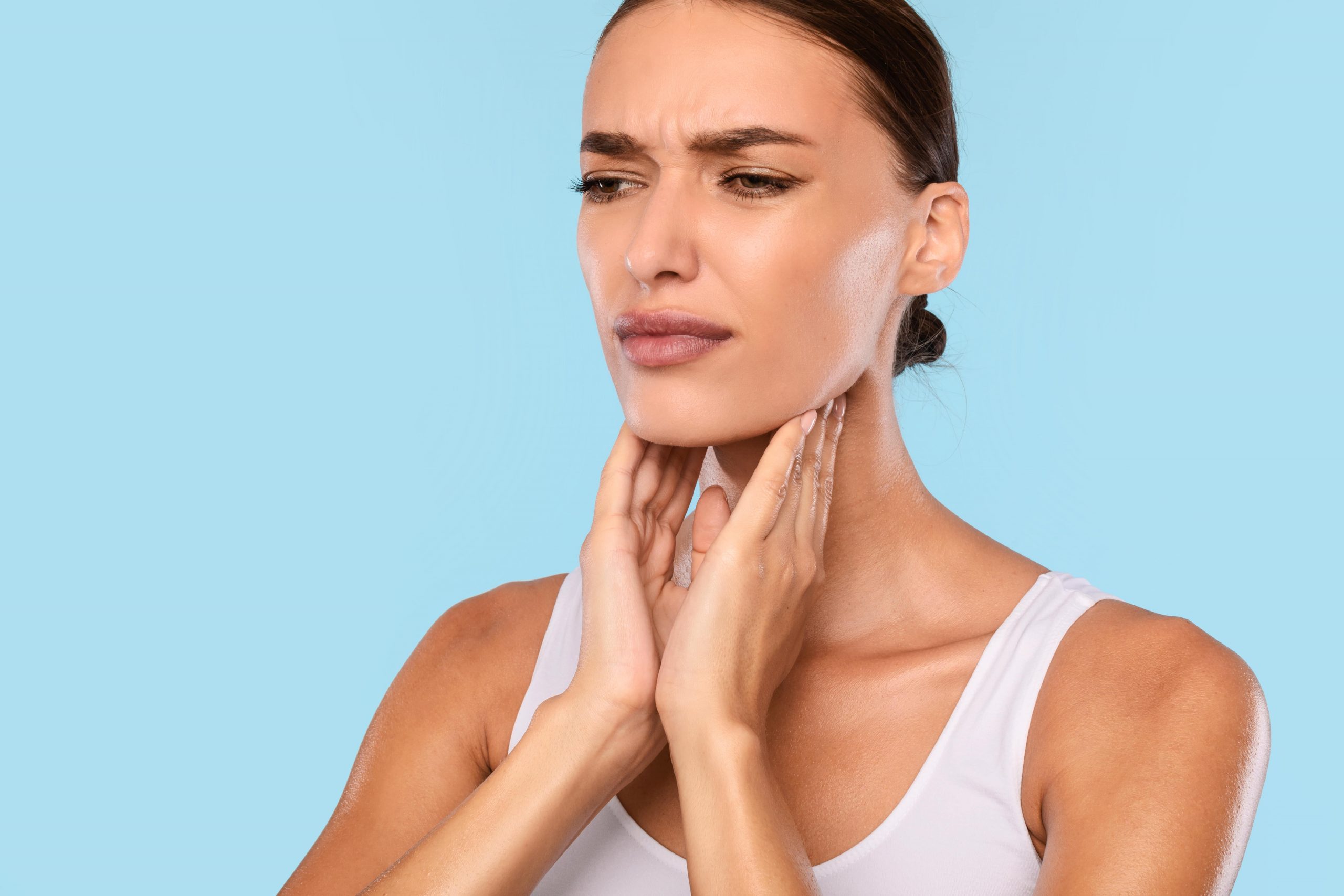Throat problems are symptoms in the throat area that are indicative of an underlying disease, disorder or condition. Common throat conditions include soreness and difficulty swallowing (dysphagia). Other disorders may cause breathing difficulties as well as lead to growths or sores on your throat.
Viruses and Infections
Viral infections such as colds or the flu are the most common cause of sore throats. Generally, symptoms resolve on their own after one week but medical attention may be necessary to avoid serious complications.
Bacterial Infections
A bacterial infection can cause throat inflammation, usually in conjunction with other symptoms like fever, cough and sore throat. Group A streptococcus bacteria is usually responsible for these infections which occur most commonly among children between five and fifteen. In severe cases, bacteria may lead to more serious health issues like tonsillar cellulitis or rheumatic fever.
Herbs and Teas
Herbal teas such as slippery elm, marshmallow root and licorice root can be used to treat a sore throat. Although these herbal treatments have not been extensively researched, some studies suggest they may help relieve pain and reduce swelling in the throat.
Stomach Acid Reflux and Gastroesophageal Reflux Disease
People with gastroesophageal reflux disease (GERD) typically experience a sore throat and heartburn from stomach acid backing up into the esophagus, irritating the lining of their mouth. To treat GERD effectively, people can take H2 blockers or proton pump inhibitors which reduce acid production in the stomach and help the sore throat go away.
Gerd can be prevented by changing your eating habits and drinking plenty of fluids, as well as taking antacids or other medications to treat stomach acid and reduce symptoms. Smoking and alcohol should also be avoided since they tend to aggravate GERD symptoms.
Chemical Irritants
Sometimes, chemical irritants in the air can cause a sore throat or difficulty swallowing. These include particles from burning fossil fuels, household chemicals or air pollution. Symptoms may also be triggered by yelling or screaming, mouth breathing or nasal drainage down your back of your throat (postnasal drip).
Oral Lesions and Ulcers
Oral lesions or ulcers in the mouth or throat can interfere with eating, speaking, blowing, chewing and responding to facial expressions. These may be benign or cancerous in origin and should be evaluated by a physician for evaluation and possible treatment options.
Epiglottitis
Epiglottis, also known as epiglottitis, occurs when the epiglottis becomes inflamed or infected and prevents food from entering your windpipe, leading to a sore throat. Signs include pain in the throat, difficulty swallowing, hoarseness of voice and breathing difficulties.
Other ENT-Related Conditions
Certain head and neck conditions, such as cervical cancer, can cause throat symptoms. These disorders affect the larynx (voice box), pharynx (food pipe) and trachea (windpipe).
When you have any of these conditions, your doctor will conduct a physical exam to identify any underlying problems causing your throat symptoms. They might use an instrument for closer inspection or perform a biopsy. They’ll also inquire about your general health status, smoking/drinking habits and sexual history.



